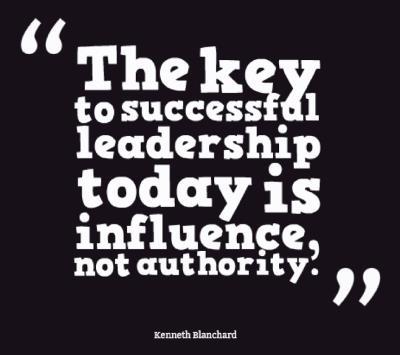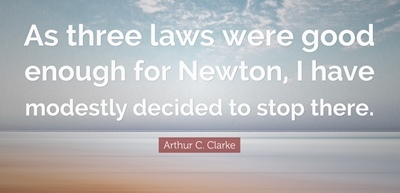Jeremie Averous's Blog, page 45
April 13, 2019
How Leadership is Really About Influence, Not Position or Authority
It is worth remembering from time to time that actual leadership is about influence. In large organizations it is still too often associated with position and hierarchy; and even more with formal authority levels. In reality, actual leadership shows in transverse situations where influence is key to get things done.

This is a particularly difficult issue because leadership is nowadays often an important source of value creation (creating new processes or products is always down to a transverse effort, often not formally framed), therefore, leadership capabilities should lead to higher compensation. However, as a skill it is difficult to measure and recognize.
I am often involved as a consultant in the definition of ‘influence’ positions where people monitor some progress, but are not formally in charge. This is typical for example of project manager or package managers which have to see that all the required elements will converge, but have no formal authority over all the contributors. Those positions require a lot of leadership and inter-personal communication capabilities. Yet they almost always fail to be recognized to their value by organizations, because they are transverse, and the skills required are distinct from a functional development trajectory.
At the end of the day, real leadership is about influence, and not about formal authority. It is about achieving things. Let us not be influenced by immediate recognition or authority. Being a leader is something of an internal calling, and the achievements brought by it are what count.

April 11, 2019
How To Benefit from Consensus and Diversity
Valeria Maltoni in her post ‘The Relationship of Value and Influence‘ addresses an important issue: while the best decisions require diversity, how can we get consensus in a very diverse group?

On one side, we tend to stick with people that are similar – and this is magnified by social media to a dramatic level: “While social media has enabled anyone to reach anyone else on the planet, the truth is that we tend to pay attention more readily to people who think and act like us. Nature has given us a compelling reason to do that — nobody survives alone. Humans band together, it’s our instinct.”
On the other hand, “Research has demonstrated that diversity enhances our ability to explore new ideas, allowing us to see a problem from different points of view. More variety in how people think about an issue is a strength“
However, “a meta-analysis of 108 studies and more than 10,000 teams# found that diversity hinders consensus“. How can we address this conundrum?
Valeria Maltoni suggests to have some diversity, but not too much, so as not to hinder the consensus-building mechanism. This may not be the best solution, and is definitely not applicable in some situations (e.g. democracy).
We need to make the effort to consider and learn from alternative views and include diversity in our intellectual consciousness. And we need to devise processes that fit with the requirements of decision-making in the specific situation, while allowing diverse viewpoints to be expressed. This is a major challenge for the collaborative age, as we can see daily. Specific research may be needed to provide new formats and tools for consensus building, that may include more direct voicing of opinions in a structured manner.

April 9, 2019
How Internet Giants Disruptors Now Have to Address the Physical Economy
I love that post from Mitch Joel ‘A Funny Thing Happened On The Way To Disruption‘ that started from the issue faced by publishers over last Christmas: loss of capacity in printing shops made many popular books unavailable.
 Uber buys thousands of cars
Uber buys thousands of carsInternet disruptors have reached a disruption stage where their decisions have so much impact in the physical world that they now have to intervene in that world.
Mitch Joel quotes “Tom Goodwin (of Zenith Media) and his well-worn/well-used quote from 2015: “Uber, the world’s largest taxi company, owns no vehicles. Facebook, the world’s most popular media owner, creates no content. Alibaba, the most valuable retailer, has no inventory. And Airbnb, the world’s largest accommodation provider, owns no real estate. Something interesting is happening.”“
“What many people don’t know, is that Tom updated that quote this year to read: “The world’s largest taxi firm, Uber, is buying cars. The world’s most popular media company, Facebook, now commissions content. The world’s most valuable retailer is now Amazon, and has more than 350 stores. And the world’s largest hospitality provider, Airbnb, increasingly owns real estate. Things change.””
Things change indeed, and also show how internet disruption really impacts our daily life now. This may lead to another deep transformation of our economic setup: as internet companies will have to own much more physical assets, their business model will also transform.

April 6, 2019
How the Flip of the Digital Divide is Meaningful
Seth Godin’s post ‘The digital divide is being flipped‘ explains how the children of the rich are nowadays protected from the consequences of the screens, whereas the children of the poor are left to their addictive consequences.

I still remember a few years ago when digital divide was about the rich getting access to the wealth of internet while the poor (or the remote) couldn’t. It was a massive issue for governments who committed substantial resources to bridging the gap: “Privileged parents, those with time, education and money, were giving their kids access to the tools of the net while other kids were missing out on the wealth of interactions and information available online. The fear was that this gap would further magnify differences in opportunity.”
Nowadays, screens and internet access is almost ubiquitous, and the issue is rather not to get addicted to social networks, online games and other time-losing activities. Social network leaders are known to forbid screen access to their children.
The internet has moved from an incredible access to a wealth of information to a mass addiction machine. It does not need to be that way: what is important now is educating the younger generations about health rules when using screens and the internet, and how value can be extracted. This may need to be a new emergency for governments!

April 4, 2019
How to Overcome a ‘Big Gulp’ Decision in Transformations
Following from our previous post ‘How many Transformations Fail Due to the Lack of Decision‘, in her post ‘Big Gulp Decisions‘ Charlene Li suggests when it comes to the manner of taking the decision to transform, that the right strategy is to ‘burn the boats’.

“Realize also that in the end you’re not going to have all the answers. You will never be 100% certain. […] Once you decide to make this decision be prepared to what one disruptive company calls “burning the boats”. We have to be willing to say we’re making this decision and we’re moving forward and there is no going back. Because if people think that there is an option to go back to what you normally doing before, they will hedge.”
On that perspective, I am not too convinced that it is the right strategy in all cases, because contrary to the Spaniards landing in America with Cortes, organizations nowadays live in an open world – people can decide with their feet to go somewhere else. Therefore, while it is important to ensure commitment to the transformation, the risk of people fleeing is also real.
My recommendation is to instill the transformation at a reduced scale in a specific part of the organization – maybe a specific subsidiary, or even a newly created business, and then let it spread by example and exchange of personnel to the rest of the organization. This also avoids to ‘bet the house’ on the transformation and maintains revenue from the traditional business. This approach may seem less efficient, but it takes into account that something that works will attract people in an open world.

April 2, 2019
How many Transformations Fail Due to the Lack of Decision
Charlene Li is a specialist of digital transformation. In her post ‘Big Gulp Decisions‘ she expands on the issue of taking the decision to move into actual transformation after the phases of analysis and planning. If it is a real disruption, the change will be dramatic and probably irreversible. What does it take to move forward?

“In many ways the reasons why most organizations do not go into the disruptive strategies and really move into that assertively and intentionally is that they come up to this big gulp moment and they haven’t prepared for it. For some reason they think some magic wand will show up and they can wave it and it’ll be an easy obvious decision. It’s never that way“
So, many failures in transformation programs could stem from the fact that when comes the time, the decision is not actually taken.
This decision can’t be a half-hearted decision. The governance body must be prepared to take it. It might be the main responsibility of the directors, in addition to planning for the transformation, and it might be the most difficult decision to make: what are you willing to stop doing? Are you willing to bet the house on the transformation? Will you stick to it whatever happens?
“Preparing for that big gulp moment is something that has to be built into a disruption strategy. What are the preparations, the data you need to make? Also, what are you going to do afterwards to be able to make sure that people are aligned and able to move forward from the big gulp moment?“

March 30, 2019
How Arthur C Clarke’s Three Laws Continue to Apply
Arthur C Clarke, famous science-fiction writer, produced three statements about technology development. They are quite applicable and profound, in particular with the perspective on the Fourth Revolution. I find it useful to share them here.

When a distinguished but elderly scientist states that something is possible, he is almost certainly right. When he states that something is impossible, he is very probably wrong. The only way of discovering the limits of the possible is to venture a little way past them into the impossible. Any sufficiently advanced technology is indistinguishable from magic.
The first statement is about the role of the change of generation in our institutions: too often, such a change is needed for our paradigms to evolve officially – experts and professors remain stuck in their worldview.
The next statements are about going beyond what we believe is possible. There are not enough visionaries doing that nowadays: in spite of the start-up trend, too many start-ups remain within the established possible.
I love the mention of magic, because the last statement tells us that irrespective of the progress of technology, there will always be magic: beyond the currently possible, and we will always be amazed. Let’s look for the next magical stuff!

March 28, 2019
How Millennials are Poorer Compared to Previous Generations
Following up from our post “How Millennials Would Be Less Interested by Start-Ups“, one of the reasons may be that millennials have less money to start companies. There is an ongoing debate about the wealth of millennials compared to previous generations. Some argue that this generation is substantially poorer than previous ones, in particular in the US due to student debt (see for example ‘Millennials are killing countless industries — but the Fed says it’s mostly just because they’re poor‘), while other argue that they are in fact more educated and potentially more wealthy even if it does not show in numbers at a younger age (see ‘Actually, millennials may be the wealthiest generation‘).

The Fed states that “Millennials are less well off than members of earlier generations when they were young, with lower earnings, fewer assets, and less wealth,” the study said, adding, “Conditional on their age and other factors, millennials do not appear to have preferences for consumption that differ significantly from those of earlier generations.” It seems their average net worth is substantially lower than previous generations at the same age.
The counter argument is that the metrics used traditionally to measure wealth are not applicable. “Millennials are not only more educated, they are also more urbane. The changing structure of the economy rewards living in large, urban areas. In a knowledge economy, big cities are where they find well-paid jobs and valuable social networks. Better opportunities, coupled with falling crime rates, means millennials tend to live in cities more than previous generations. More time in school and city living requires different life choices than boomers and Gen Xers and it shows up in millennials’ asset portfolios.”
The debate is on. What seems clear is that millennials have less net-worth than prevous generations, at least in the US but also probably elsewhere, even if they can hope to earn more in the future. The feeling of becoming poorer may be the engine of social unrest and substantial changes in how our societies are run, in particular for those less educated and not living in cities.

March 26, 2019
How Entrepreneurship Would Favor the Wealthy
Following up from our post “How Millennials Would Be Less Interested by Start-Ups“, this interesting post ‘Fewer, Bigger Entrepreneurs Explains Rising Inequality‘ refers to a published economical study that would show that the rise in inequality results from the fact that successful start-ups need to be well funded, and thus that start-up innovation basically favors the already (relatively) wealthy.

This idea is interesting and important. It makes two assumptions: that it is easier to start a new venture when one is already well-to-do (which is probably right, as poorer entrepreneurs will have part of their mind focused in getting enough revenue to live); and that overall, people that start entrepreneurial ventures increase their net-worth. This is probably less easy to prove and only works in average, as most start-ups rather end up losing money and diminishing entrepreneurs’ net-worth; however some are wildly successful, but the notion of average may not be relevant.
Would the rise in entrepreneurship explain the rise in inequality in our societies? It may certainly contribute (a large portion of the super-wealthy have been entrepreneurs), but is certainly not the entire explanation either. There are other factors at work, from tax policies to evolution in compensation policies. Still it is an interesting viewpoint and reminds us that to be able to start a new venture, one must have the peace of mind that comes with sufficient wealth.

March 23, 2019
How Millennials Would Be Less Interested by Start-Ups
Working in, or starting a start-up is very trendy. It has taken a significant pace in many countries as the occupation of choice. In France, it is now highly regarded. Nevertheless, it would seem that this is slowing down at least in the US, as mentioned in this interesting Atlantic article ‘Start-Ups Aren’t Cool Anymore‘.

According to the article, “A lack of personal savings, competition from abroad, and the threat of another economic downturn make it harder for Millennials to thrive as entrepreneurs“. In particular, “Research suggests entrepreneurial activity has declined among Millennials. The share of people under 30 who own a business has fallen to almost a quarter-century low“.
Reasons range from lack of funds to the fact that established corporations would become increasingly entrepreneurial and drive innovation (on the latter, I am still convinced that they are too slow compared to start-ups, but they have more means)
It will be interesting to watch if this trend confirms and spreads. It might be that some people get disillusioned about the gamble of a start-up. Still, it has proven to be a driving force of employment and innovation.




